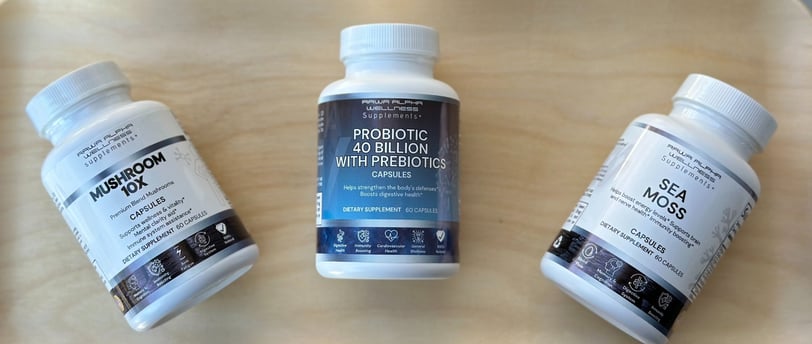Herbal and Botanical supplements for your preventive and corrective health
Herbal and botanical supplements Herbal and botanical supplements are made from plants or plant parts and are used for medicinal or therapeutic purposes. Some people may use them to prevent certain diseases or to help treat existing conditions. They differ from vitamins and minerals in that they are considered to have medicinal value. Before Western medicine, traditional therapies used herbs to prevent and heal specific ailments. Some commonly known herbs and their suggested benefits include: Ashwagandha may support sleep quality and stress management. Echinacea may play a role in immune function. Ginkgo biloba may support cognitive function. Turmeric’s active ingredient, curcumin, may help reduce inflammation and support joint health. Including black pepper (sometimes listed as piperine on a supplement label) allows your body to better benefit from the curcumin. St John’s Wort may support mental health as it relates to depression and anxiety. Ginseng may play a role in cognitive function. Valerian root may support sleep quality and mental health. Saw Palmetto may support prostate health. Elderberry may play a role in immune function. Peppermint may support the digestive system. Chamomile may support sleep quality and mental health. Ginger may play a role in digestion and reducing nausea. Green tea may support immune function and cognitive function. Before taking a new herbal supplement, though, you’ll want to consult with your doctor. Some herbal supplements can interact with over-the-counter medications or prescription drugs and cause adverse side effects. Though an herbal supplement is extracted from a “natural” source, it may still be as potent as any other medication you take. Whole food supplements Whole food supplements are made from whole food sources and typically provide the same nutrients as their whole food sources—vitamins, minerals, antioxidants, phytonutrients, or bioactive compounds. Unlike conventional vitamin and mineral supplements, they are non-synthetic and made from concentrated, minimally processed whole foods. Some commonly known whole food supplements include: Greens powders that include ingredients like spirulina, chlorella, wheatgrass, or barley grass. Fruit and vegetable powders. Probiotics. Omega-3 fish oils. Protein powders, both animal and plant-based. Fiber supplements. Mushroom blends.
Help Guide
3/19/20251 min read


Wellness supplements
